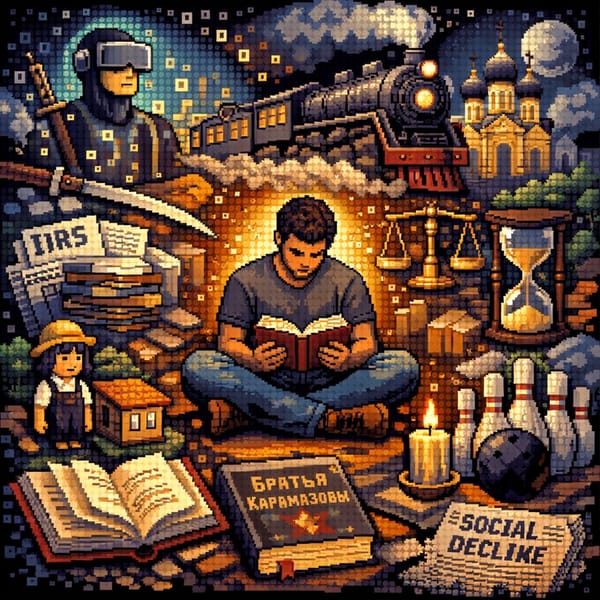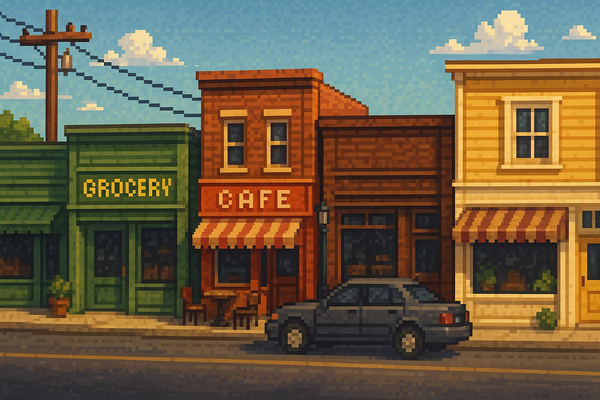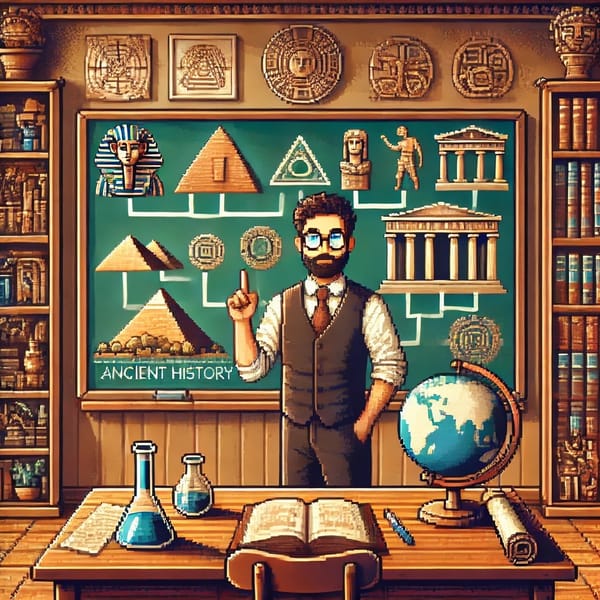Everyone will be a producer in the age of AI
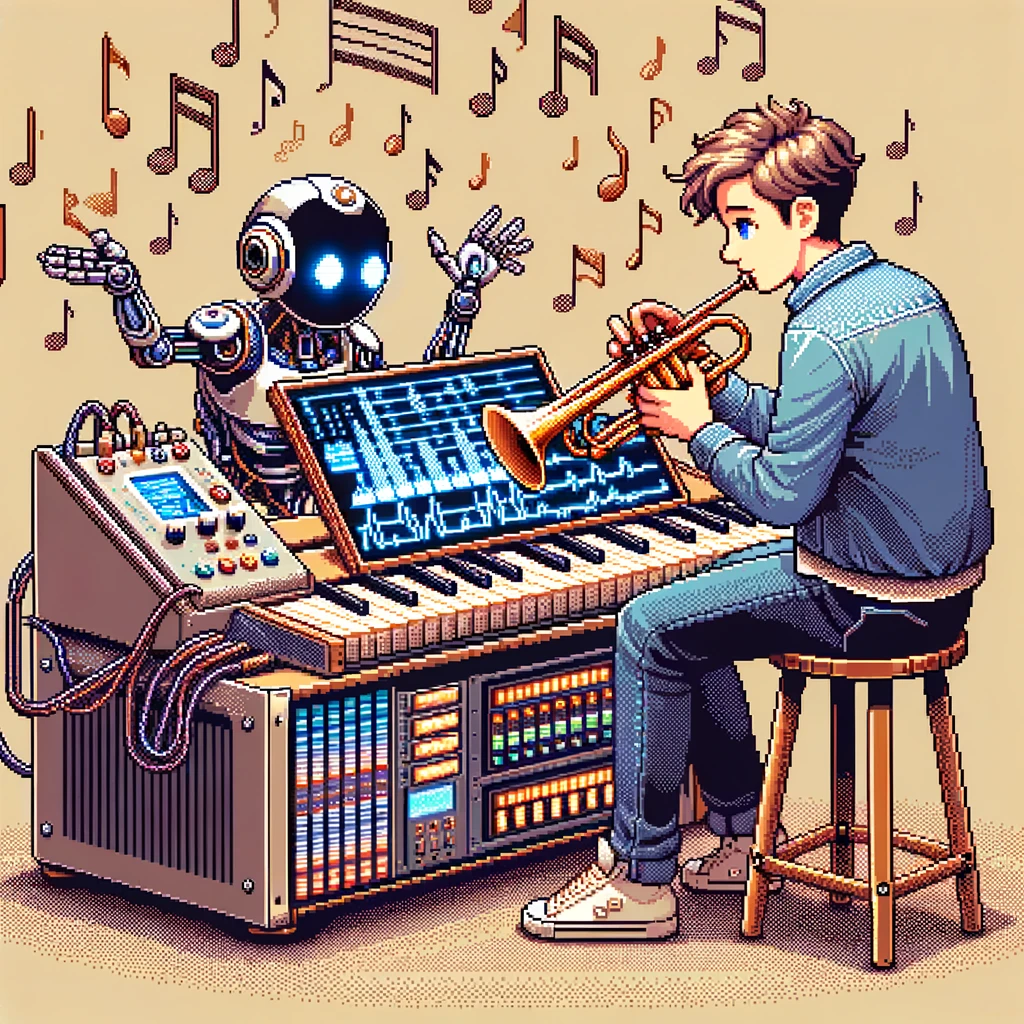
Something I have been thinking a lot about recently is the implications of generative AI. This started purely as academic research, but the more I read, the more interested I became by its broader impact on culture. While I do recognize that there is some controversy here, it is clear that AI is here to stay. What makes it so intriguing and simultaneously frightening is the technology's unique ability to be independently creative.
Here are a couple of good examples:
- A biblical verse in the style of the King James Version (Source)
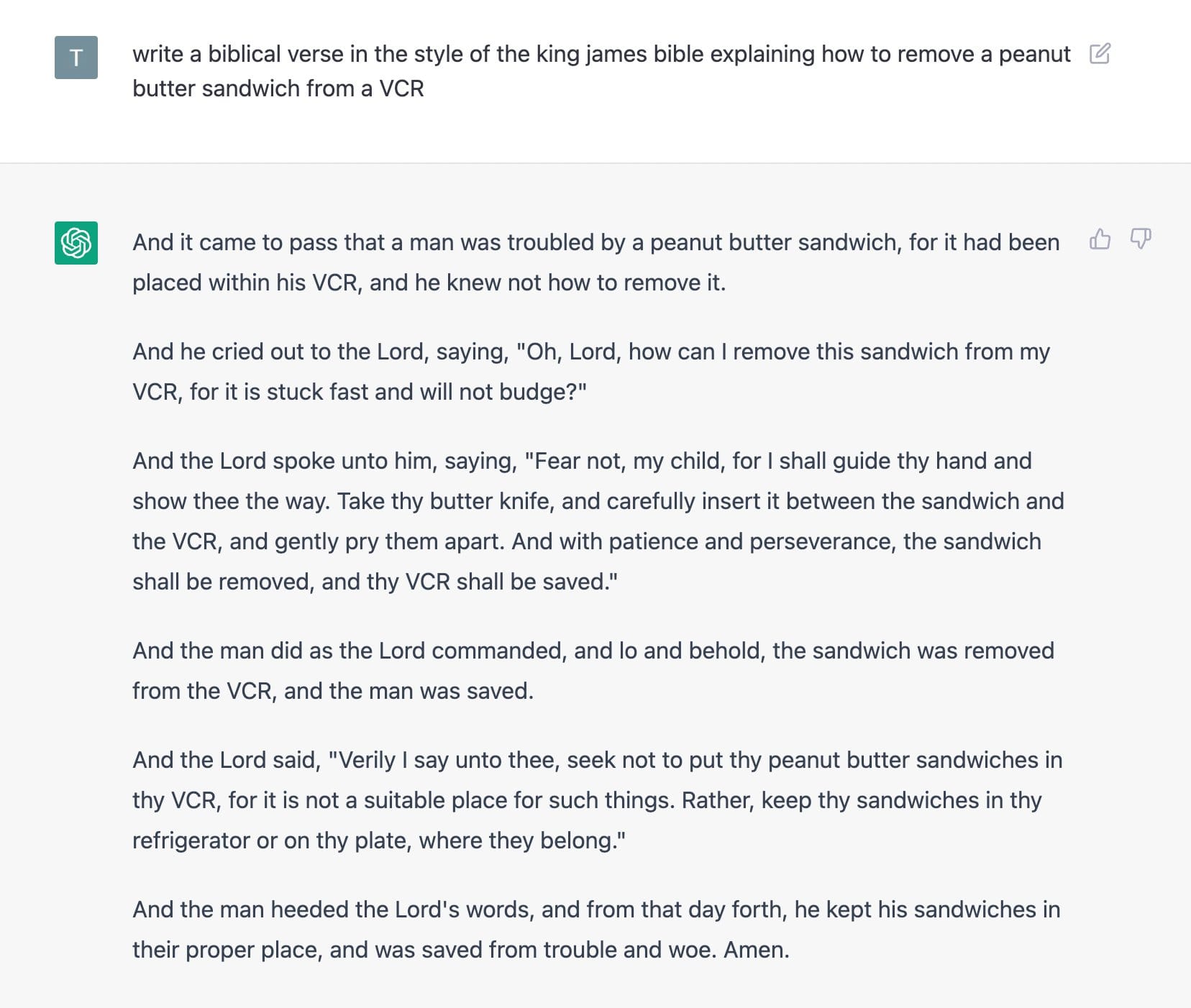
- Théâtre D’opéra Spatial by Jason Allen won best digital artwork at the Colorado State Fair. The award was later stripped when people learned he used generative AI. (Source)
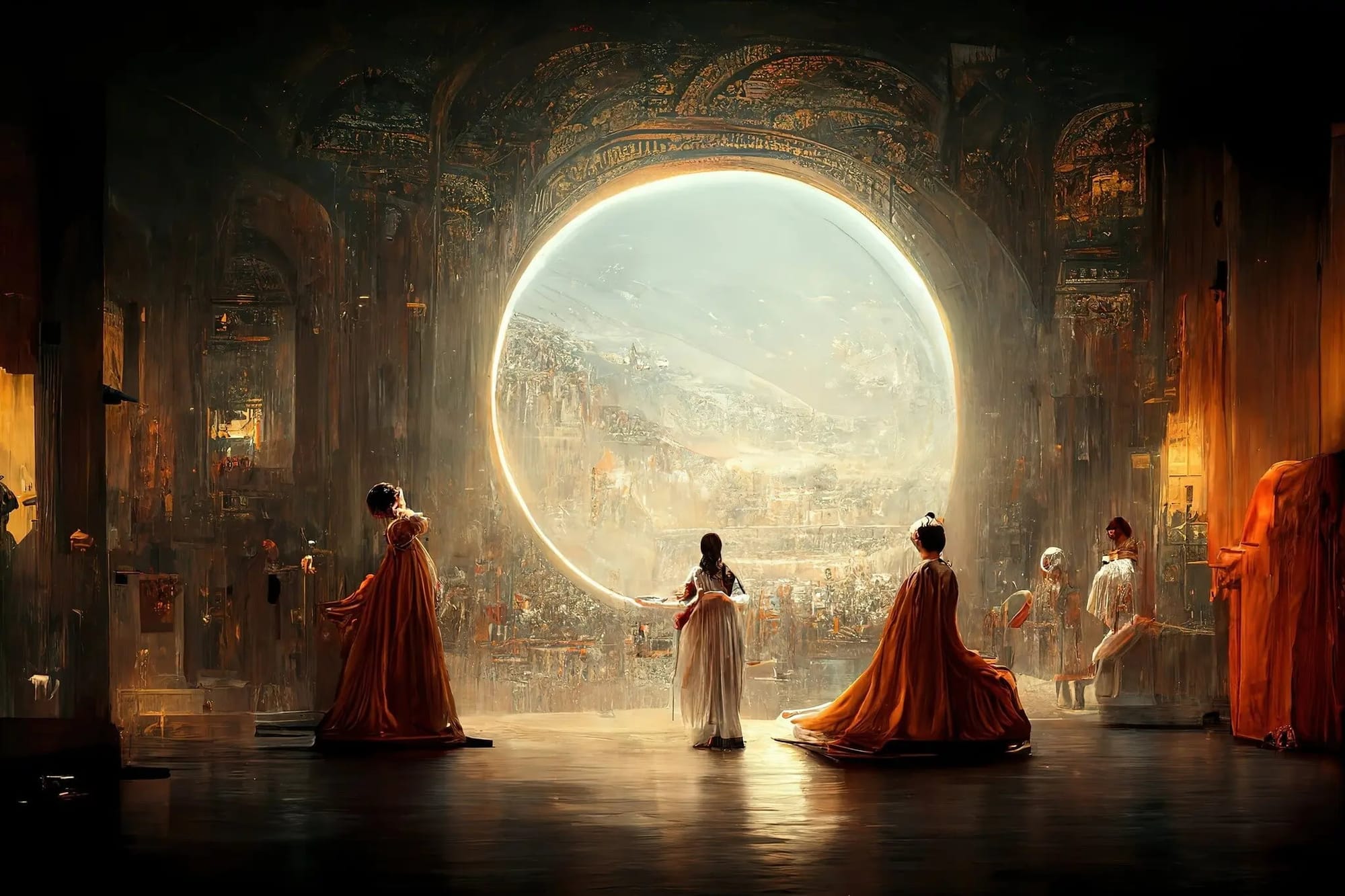
The first example is a bit silly, but the second resembles a new type of creativity.
Separating Ideation and Creation
Generative AI allows someone to envision a piece of art and bring it into reality without traditional Photoshop, graphic design, or drawing skills. Previously, if you had a vision of an image, you needed to learn those skills or hire someone to make it a reality. Generative AI, on the other hand, allows you to execute the vision exactly as you see it in your head in significantly less time and at little to no cost. There is similar evidence of success in the creative side of other domains like consulting and coding.
This shift parallels how renowned music producer Rick Rubin operates – he excels due to his taste, not technical skills. He doesn't know how to play any instruments or work a soundboard, and is still one of the most famous music producers in the world.
Taste
The ability to identify what is or is not good. AI cannot do this themselves because culture is too complicated (explanation of why in the appendix). We will no longer be paid for the ability to execute a vision but to have a good vision ourselves.
How does one develop taste? Traditionally, you refine "taste" by being in an entry-level role and executing the manager’s vision until you know enough to manage the next batch of employees. Now, with AI handling many tasks typically assigned to entry-level positions, the landscape is changing. The outcome remains uncertain, but it may pave the way for more streamlined organizations emphasizing collaboration. Broadly, it will be more about knowing the right questions to ask, not knowing the correct answer.
Working with AI
Getting the desired product out of a generative AI tool is iterative. You must be clear and add additional points as needed. For this reason, the people most prepared for this AI shift will be those who can most clearly explain themselves and their thinking. (Yet another reason I wanted to start writing, but it felt like too much of a can of worms to include last week.) This shift will gradually take hold. For example, even though image generators do a pretty good job, if you want to use them professionally, they are taken to Photoshop first for a few touch-ups. As the AI gets better, it can gradually take off more responsibility.
Implications
The long-term implications are positive, but getting there will be rough as many jobs are automated away.
- More Creativity - Historically, we have sacrificed much human creativity in the workforce for productivity. When someone is meant to execute someone else's vision exactly, you would prefer them to be a cog.
- Revival of the Liberal Arts Education - This will be the revival of the liberal arts education. People won't need to know exact skills, but how to think.
- The Best Ideas Scale Faster - If you have a good idea, you can start a single-person business more easily and reap benefits that used to require 10s of people—moving from the famed 10x engineer to a 100x engineer.
- AI Impact will hit new industries - Previously, you needed to be highly digital and great at capturing data to benefit from AI. This means most of the rewards were reaped by finance, technology, and media companies. Now, everyone will be impacted. The internet did not significantly impact healthcare quality, but AI will.
- Revival of the Renaissance Person (Fox) - We have trended toward people being more and more specialized over time. To fully leverage the power of AI, you will need to have broad knowledge.
- Productivity KPI - If your job is measured based on productivity, it will likely be replaced. A good example is call centers. They are hyper-optimized to handle calls, chats, and emails as quickly as possible, many things an AI can already take.
- Garbage - AI will continue to fill the internet with garbage. Things automatically produced by AI without consideration for taste will proliferate and make the public internet nearly unusable. People will rely on walled gardens and trusted publications.
Appendix
Culture is too complicated for an AI to determine what is valuable because it is computationally irreducible. It is so complex that there is no way to predict the outcome, even if you have the starting state. If it were a computationally reducible problem, it would imply that we don’t have free will. Which maybe we don't, I mean I have no idea. Thoughts for another Thought...
References
- The AI Unbundling - Stratechery (Link)
- Will AIs Take All Our Jobs and End Human History—or Not? Well, It’s Complicated… - Stephen Wolfram (Link)
- Drowning in AI Generated Garbage: The Silent War We Are Fighting (Link)
- AI: Markets for Lemons, and the Great Logging Off (Link)
- Lex Fridman interviewing Stephen Wolfram and Marc Andreessen
- Assigning AI: Seven Ways of Using AI in Class (Link, or anything from Ethan Mollick)
- The Future of Writing Is a Lot Like Hip-Hop (Link)
- Rick Rubin coming up with the intro to 99 Problems with Jay-Z (Link)
- Kevin Kelly with LibertyRPF (Link)
- Discussions with Amy
